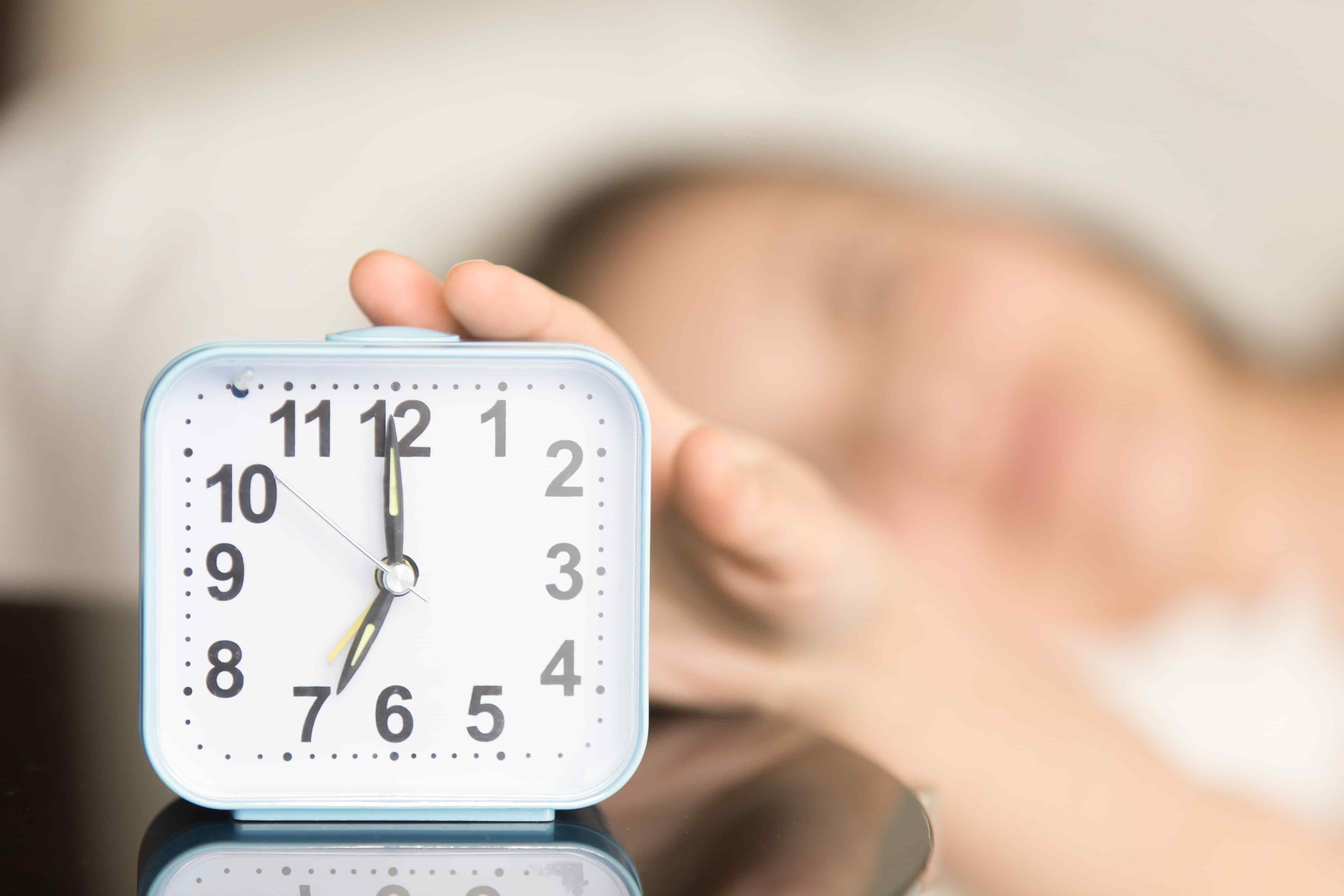
What is Circadian Rhythm & How is It Affected by Screen Time ?
Have you ever noticed that some mornings you wake up refreshed while on others you feel like you’ve barely slept—even with the same number of hours! Well, the next time you scroll through your phone before bed, ask yourself a simple question: Could this innocent looking act of unwinding after a long day by engaging in late-night scrolling is sabotaging your sleep time?
Screens are not just mere tools anymore. They have started to shape how our bodies function on a fundamental level. Three researchers Bradley Brosnan, PhD, Jillian J. Haszard, PhD and Kim A. Meredith-Jones, PhD from the University of Otago Dunedin, New Zealand published a study on Jama Network where they shared their finding that each additional 10 minutes of interactive screen use before bed can delay sleep onset by 10 minutes.
You’ve probably had those nights where you’re lying in bed and staring blankly at the ceiling, asking yourself, 'Why can’t I fall asleep? Why won’t sleep just come?' It’s because even after you’ve put your phone down, your brain is still buzzing from those extra minutes of scrolling and is unable to settle back into its natural rhythm.
So, how exactly does this disrupted sleep affect your overall well-being? And more importantly, how can you take back control of your sleep cycles in a world dominated by screens? Let’s dive in to uncover the science behind circadian rhythms and learn practical ways to protect them in this digital age where everyone is glued to their screens 24/7.

Understanding Circadian Rhythm: Your Body’s Natural Clock
Your circadian rhythm is a 24-hour internal clock regulating various physiological processes, including sleep-wake cycles and hormone production. It’s like your body’s personal timekeeper which ensures that you feel alert during the day and sleepy at night. This rhythm is influenced by external factors, the most powerful of which is light.
Dr. Satchin Panda, P.hd, a leading researcher on circadian biology, describes it as the natural alignment of our body's internal functions with the light-dark cycle of the day. He further explains “Our bodies are programmed to sync with the natural light-dark cycle. When this cycle is disrupted, it throws off our sleep, metabolism, and overall health.”
The biggest challenge we face today is that this natural synchronization of light and sleep cycle is under constant attack. Instead of responding to the soft cues of sunrise and sunset, our bodies are bombarded with artificial blue light from screens—light that mimics daylight even during the late hours of the night, raising the important question of how does screen time affect sleep and disrupt our natural rhythms.
This overstimulation confuses our internal clock and makes it harder for our body to know when it’s time to wind down and ultimately disrupts the delicate balance of our circadian rhythm.
Also Read - How Screen Time from Cell Phones Ruin Relationships?
How Screen Time Disrupts Your Circadian Rhythm
By now, it’s clear that our circadian rhythm is deeply intertwined with light—natural or otherwise. And in today’s digital age, the artificial blue light emitted by our screens has become an uninvited guest in our life which often confuses our internal clock (circadium rhythm).
Blue Light Suppresses Melatonin
Melatonin is a hormone that signals your body that it’s time to sleep. Exposure to blue light from devices like phones, laptops, and TVs suppresses melatonin production. Researchers at Harvard Medical School found that blue light is twice as effective at suppressing melatonin production and shifting circadian rhythm as other types of light and therefore a constant exposure to blue light from your screen makes it harder for you to fall asleep.
Delayed Sleep-Wake Cycles
American Academy of Pediatrics revealed in research that screen exposure before bedtime is linked to delayed sleep onset and reduced sleep quality, leading to shorter and more fragmented sleep patterns.
Adolescents are particularly vulnerable. According to the National Sleep Foundation's Sleep in America Poll, by the 12th grade, 75% of students report sleeping less than 8 hours per night compared to just 16% of sixth graders, with many of them using screens before bed, which contributes to this sleep deprivation.
Increased Alertness at Night
Screens are not only a hindrance to falling asleep but also in getting a good night sleep. They actively keep your brain in a heightened state of alertness during hours when it should be winding down.
Engaging in stimulating activities such as gaming or scrolling through social media triggers the brain’s reward system and releases dopamine, the “feel-good” neurotransmitter. This neurological response not only reinforces the behavior but also delays the natural transition to a state of rest and makes it significantly harder to “switch off” and prepare for sleep, especially when there is excessive screen time before bed.

Why This Matters: The Long-Term Impact of Circadian Disruption
When your circadian rhythm is consistently out of sync, the effects go beyond just feeling tired. Chronic disruption has been linked to:
- Mental Health Issues: As discussed earlier, adolescents and young adults are particularly susceptible to the harmful effects of circadian rhythm disruption and this is largely due to their excessive screen use during critical developmental stages. According to the U.S. Surgeon General’s Advisory, teens who spend more than three hours daily on social media are at double the risk of experiencing anxiety, depression, and other mental health challenges.
- Impaired Cognitive Function: Poor sleep doesn’t just leave you tired—it hinders your brain’s ability to function optimally. Disrupted sleep negatively affects your memory, focus, and decision-making. Over time, this can lead to long-term cognitive decline, with potential implications for conditions like Alzheimer’s, but improving your sleep habits can help restore your power to sleep and allow your brain to function at its best.
- Physical Health Risks: Chronic circadian rhythm disruption has been associated with an increased risk of metabolic disorders, such as obesity and diabetes. It impacts your hormone regulation and leads to imbalances in appetite and metabolism. Additionally, your cardiovascular health is also at risk as prolonged sleep disruptions can elevate blood pressure and increase the likelihood of heart disease.
Mindfulness and Technology: Finding a Better Balance
All of this might sound daunting, but there’s good news. By making small, intentional changes, you can protect your circadian rhythm while still enjoying the benefits of technology. You don’t have to eliminate screens from your life, you just need to learn how to use them wisely.
1. Embrace the Power of Morning Sunlight
The simplest way to reset your circadian rhythm? Step outside. Dr. Satchin Panda emphasizes the importance of natural light exposure in the morning to anchor your body clock. “Even 10-15 minutes of sunlight early in the day can signal your brain to regulate melatonin and cortisol levels effectively.”
You might be thinking, “I barely have time in the morning—how can I fit in sunlight too?” It’s a valid concern. Mornings are often chaotic, and finding time for yourself feels impossible.
Start small. Pair your morning coffee with a walk outdoors or sit near a sunny window while scrolling through emails. You’re already doing these things—just move them into the light. You don’t have to find extra time, you just have to be intentional with the time you already have. Plus, the mood boost you’ll feel will make it easier to tackle your day.
Check this Article for Fix Digital Eye Strain for Screen Users
2. Limit Blue Light Before Bed
Let’s be honest—winding down after a tiring day of work without screens might feel impossible. “How do I relax without my favorite shows or catching up on social media?” you might wonder. It’s a common struggle, especially when screens feel like the only way to unwind.
But here’s the truth: screens don’t help you relax, instead they trick your brain into staying alert. You already know that blue light suppresses melatonin and those endless notifications only keep your mind racing. Using your phone before bed means having restless nights and groggy mornings.
To prevent it you can start by enabling “Night Mode” on your devices or using blue light filters. Better yet, create a digital curfew an hour before bedtime and trade your screens for a calming activity like reading, journaling, or listening to soothing music. If even this feels overwhelming, use our Jolt app to nudge you toward intentional disconnection. You can create personalized digital wellness sessions to stop you from using unwanted apps on your phone during your digital curfew.
Conclusion: Reclaiming Your Rhythm in a Digital World
Screens aren’t going anywhere, but neither is your need for balance. By understanding how screen time impacts your circadian rhythm and taking steps to protect it, you can reclaim your focus, energy, and well-being, while also considering the effects of screen time and sleep to maintain a healthier routine.
The question isn’t whether we should use technology—it’s how we can use it in a way that serves us rather than drains us. Start small. Take a walk in the morning sun, set a digital curfew, or use tools like Jolt to manage your screen habits. Each choice you make brings you one step closer to living in harmony with your natural rhythm.
After all, your circadian rhythm plays a vital role in your overall well-being and influences everything from your energy levels to your focus and mood. Isn’t it time to prioritize your well-being and show up as your best self?
Suggested Read :
How to Stay Productive at Work: Reduce Phone Distractions
5 Productivity Tips to Increase Your Productivity in 2025
10 Personal Goals to Stay Motivated and Limit Screen Time